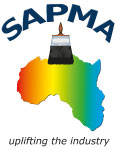SAPMA CALLS FOR URGENT ACTION AGAINST METHANOL
16 Aug 2022
Supplied by SA Paint Manufacturing Association
Increasing reports of deaths from drinking home-brewed alcohol spiked with methanol have again shown how urgently the government should implement legislation against the use of methanol in paint thinners, says Tara Benn, executive director of the SA Paint Manufacturing Association (SAPMA).
Benn says SAPMA has for many years tried to have the retail sales of methanol and its use in paint thinners banned.
“The government should take note of the devastating loss of life experienced throughout the world by methanol – and it is undoubtedly also happening here. Although still unconfirmed, methanol has recently been identified as a possible cause of the deaths of 21 teenagers at a bar in East London. Methanol was found in all their bodies.
“Many people probably also died locally from such lethal liquor during the lockdown when alcohol sales were banned. We know several people died after a Cape Town house party. It’s rampant all over the world. In July this year, dozens died after the consumption of methanol-spiked liquor in Gujarat’s Botad district in Pakistan. India has had a thriving moonshine industry, and methanol-tainted liquor has killed thousands of people there in the last four decades. In Europe, methanol-laced alcohol has been killing hundreds annually in countries such as the Czech Republic, Slovakia, Estonia and Poland. Costa Rica and Ecuador, also, have a thriving tainted alcohol industry,” Benn adds.
Because methanol deaths are often misdiagnosed as acute alcoholism, SAPMA believes home brews laced with lethal methanol are still being widely produced countrywide by locals who cannot afford to buy liquor.
“The fact that bottles of methanol, in the form of lacquer paint thinners, are widely available from retail outlets, should be of deep concern to the government. Because methanol is less expensive and more readily available than ethanol, fraudsters use it instead of ethanol in homemade alcohol. SAPMA is also concerned that children could accidentally drink a garage-stored DIY product such as lacquer thinners, sometimes containing up to 32% methanol.”
Benn says the Department of Health years ago already announced that methanol had undergone the necessary Socio-economic Impact Assessment (SEIAS) study and legislation for its banning was with the Department of Monitoring and Evaluation for approval. “This gave SAPMA hope that methanol would soon be eradicated from South African retail shelves – but we are still awaiting any meaningful action. At this year’s SAPMA AGM, it was confirmed and ratified that SAPMA and its members fully support the regulation of methanol and will be part of the task team in assisting in regulating the use of methanol within the coatings sector.”
SAPMA prohibits the unmarked use of methanol in its Code of Ethics and labelling, clearly warning that a product contains methanol, which is compulsory for SAPMA members.

